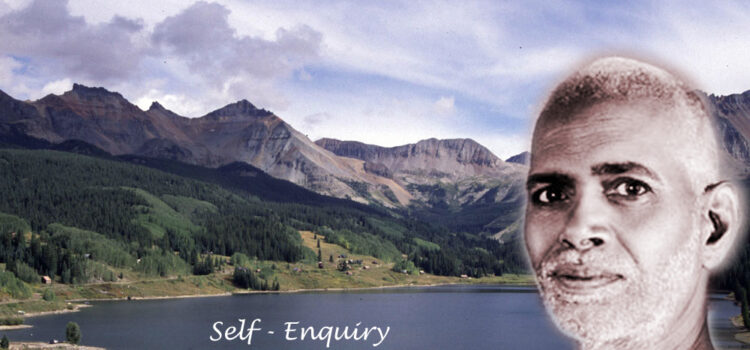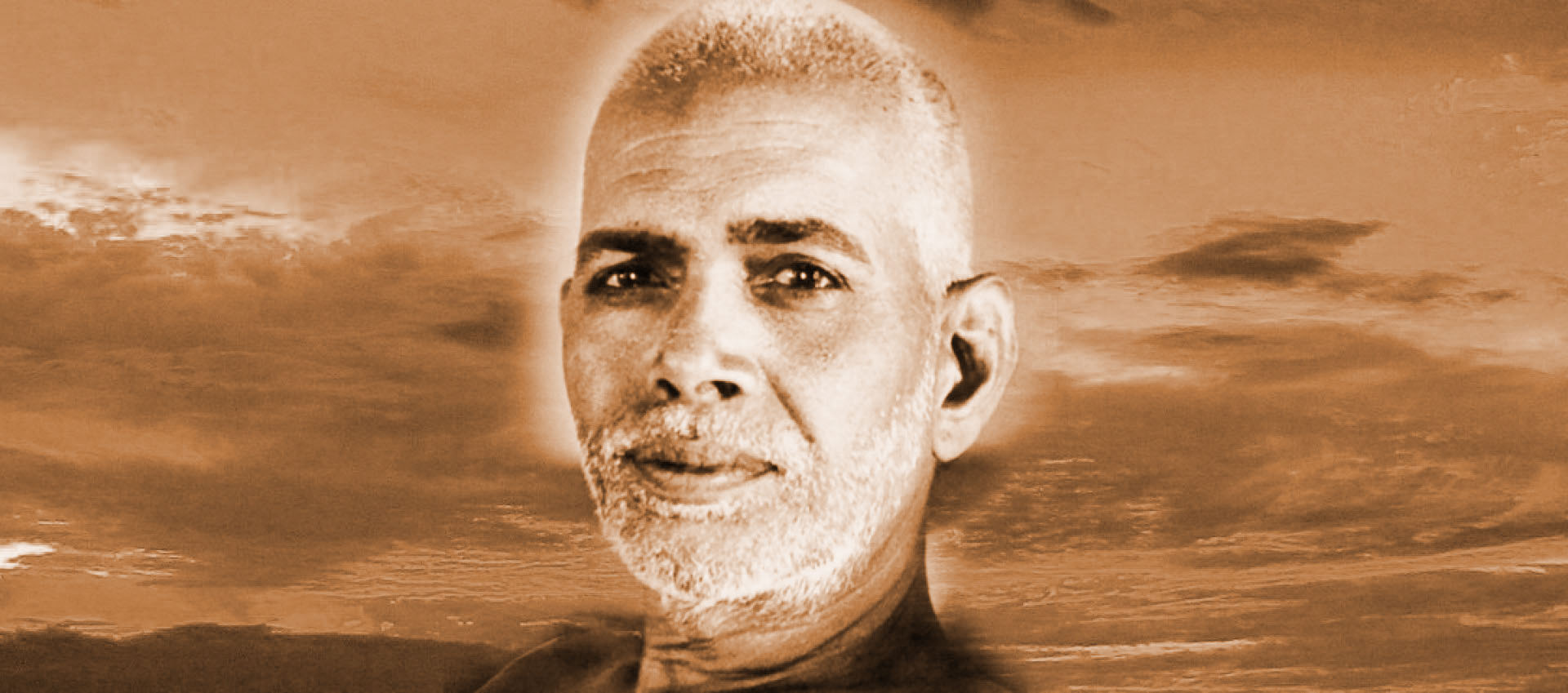
What is Self-Enquiry? How to do it? (5)
~~~~~~~~
Talk 244.
M.: The sense of body is a thought; the thought is of the mind, the mind rises after the ‘I-thought’, the ‘I-thought’ is the root thought. If that is held, the other thoughts will disappear. There will then be no body, no mind, not even the ego.
D.: What will remain then?
M.: The Self in its purity.
D.: How can the mind be made to vanish?
…
M.: If the thinker is sought, the thoughts will disappear.
…
D.: It looks easy to think of God in the external world, whereas it looks difficult to remain without thoughts.
M.: That is absurd; to look at other things is easy and to look within is difficult! It must be contrariwise.
D.: But I do not understand. It is difficult.
M.: This thought of difficulty is the chief obstacle. A little practice will make you think differently.
D.: What is the practice?
M.: To find out the source of ‘I’.
~~~~~~~~
Talk 557.
The best means of realization is the enquiry “Who am I?” The present trouble is to the mind and it must be removed by the mind only.
D.: Are there restrictions to be observed in food?
M.: Sattva food taken in moderation.
D.: There are several asanas mentioned. Which of them is the best?
M.: Nididhyasana (one-pointedness of the mind) is the best.
~~~~~~~~
Talk 596.
M.: When the matter is understood intellectually the earnest seeker begins to apply it practically. He argues at every moment, “For whom are these thoughts? Who am I?” and so forth, until he is well-established in the conviction that a Higher Power guides us. That is firmness of faith. Then all his doubts are cleared and he needs no further instructions.
D.: Is the enquiry into the Self the same as the above mentioned faith?
M.: The enquiry into the Self is inclusive of all, faith, devotion, jnana, yoga and all.
~~~~~~~~
Talk 251.
D.: How shall I reach the Self?
M.: There is no reaching the Self.
The wrong knowledge consists in the false identification of the Self with the body, the mind, etc. This false identity must go and there remains the Self.
D.: How is that to happen?
M.: By enquiry into the Self.
~~~~~~~~
Talk 612.
M.: Uncertainties, doubts and fears are natural to everyone until the Self is realised. They are inseparable from the ego, rather they are the ego.
D.: How are they to disappear?
M.: They are the ego. If the ego goes they go with it. The ego is itself unreal. What is the ego? Enquire. The body is insentient and cannot say ‘I’ . The Self is pure consciousness and non-dual. It cannot say ‘I’. No one says, ‘I’ in sleep. What is the ego then? It is something intermediate between the inert body and the Self. It has no ‘locus standi’, a firm arugument to support itself. If sought for it vanishes like a ghost. You see, a man imagines that there is something by his side in darkness; it may be some dark object. If he looks closely the ghost is not to be seen, but some dark object which he could identify as a tree or a post, etc. If he does not look closely the ghost strikes terror in the person. All that is required is only to look closely and the ghost vanishes. The ghost was never there. So also with the ego. It is an intangible link between the body and Pure Consciousness. It is not real. So long as one does not look closely it continues to give trouble. But when one looks for it, it is found not to exist.
Again, in a Hindu marriage function, the feasts continue for five or six days. A stranger was mistaken for the best man by the bride’s party and they therefore treated him with special regard. Seeing him treated with special regard by the bride’s party, the bridegroom’s party considered him to be some man of importance related to the bride’s party and therefore they too showed him special respect. The stranger had altogether a happy time of it. He was also all along aware of the real situation. On one occasion the groom’s party wanted to refer to him on some point. They asked for him. He scented trouble and made himself scarce. So it is with the ego. If looked for, it disappears. If not, it continues to give trouble.
How it is to be looked for is learnt from those who have already done so. That is the reason why the Master is approached.

